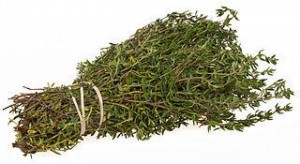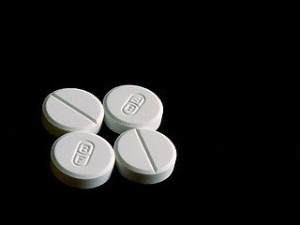Liver Health Dangers – Foods, Herbs, Supplements, Drugs
The liver is one of the most versatile organs in the human body. It is responsible for a number of different functions, from metabolizing substances, neutralizing poisons, removing wastes from the blood and manufacturing important substances for overall health.
Although the liver has a remarkable ability to regenerate, this is limited and eventually the liver can become diseased and even fail. Without a liver transplant when necessary, liver failure can result in death. Liver health is just as important as overall health.
How to improve liver health?
The same measures that are taken to maintain a healthy body will also aid liver health. This includes a range of dietary and lifestyle changes. However, the focus is sometimes only on liver health and this is at times just commercial hype to promote liver-specific health products such as herbal supplements as well as vitamins and minerals. Often there is no scientific evidence to back these claims.
Sometimes the focus should be on what not to do rather than what should be done for liver health. By removing the various stresses on the liver, it can use its natural ability to restore and maintain its health. There is no specific diet, supplement, herb or medication that can restore liver health. Instead a combination of dietary and lifestyle changes should be implemented.
Dangers to Liver Health
The following factors can be harmful to the liver. There are various other factors that may affect the liver and it is important to practice moderation at all times. Certain substances and lifestyle habits are known to be harmful and common sense therefore plays an important part in maintaining liver health.
Foods
Any food in excess can be harmful, not only for the liver but for overall health. Sugar is often not thought of as being harmful to health and specifically liver health. However, sugar can be harmful to the liver. It may cause a build up of fat in the liver as does obesity. This is known as fatty liver disease and can sometimes progress to serious liver conditions.
Trans fats, often found in greasy fast foods and baked goods, is known to be harmful to overall health and can also impact on the liver. Firstly trans fats contributes to weight gain and obesity may lead to fatty liver disease. However, studies have also shown that consuming diets high in trans fats can directly damage the liver which processes these foods and may lead to liver disease.
Preservatives
Foods that are high in artificial substances like preservatives can also be harmful to the liver. The liver has to process these preservatives, break it down and excrete it since these preservatives usually have no nutritional value. Monosodium glutamate (MSG) is one of the preservatives that have been shown to be harmful to the liver. It appears to contribute to non-alcoholic fatty liver disease and may possibly play a role in liver cancer.
Herbs
Certain herbs like milk thistle (Silybum marianum) and dandelion (Taraxacum officinale) are said to be beneficial for liver health. However, the results of some studies has been mixed while with other studies there has been no clearly identifiable of these herbs on liver health. Nevertheless these herbs, along with others, continue to be touted as being beneficial.
Contrary to popular belief, not all herbal supplements are safe. Herbs are plant material with a range of chemicals and some of these can be harmful. Comfrey (Symphytum officinale) is one herb that is known to be harmful to the liver if consumed in large quantities over an extended period of time. Another herb, kava kava, is also known to affect liver health and has been banned in some countries. Various other herbs may also have the same effect.
Nutritional Supplements
Nutritional supplements are often thought to be beneficial to overall health. While it does have benefits, it can also be harmful when consumed in large quantities, particularly in a person who does not have any deficiency. Vitamin A is an essential micronutrient that is widely available in many common foods. High intake of vitamin A in supplements can be toxic to the liver. Minerals like copper can also cause liver toxicity.
Obesity
Non-alcoholic fatty liver disease is a serious liver condition that is associated with being obese. Fat builds up in the liver and with time this can damage the liver. Most cases are asymptomatic and therefore not detected early. Obesity is on the rise in developed nations and largely associated with an excess of refined carbohydrates and inactivity. Therefore these foods and a sedentary lifestyle can be harmful to the liver.
Alcohol
It is well known that alcohol is harmful to the liver. Alcohol in the bloodstream is broken down by the liver and excess of alcohol in one sitting can be toxic. However, liver disease like cirrhosis is more often seen with long term alcohol abuse. It is irreversible and can eventually lead to death if a liver transplant is not received. Moderate alcohol consumption may not be as harmful to the liver.
Medication
Many different drugs can be toxic to the liver. It depends on the type of drug, dosage and duration of use. It is not only prescription medication that may be harmful to the liver. Even OTC (over-the-counter) drugs can be toxic and may even lead to fatal outcomes if taken in very large doses. It is therefore important to use medication as prescribed and seek professional help if a drug is not yielding the desired effect.
Risky Behavior
One of the most common and harmful factors to liver health is viral hepatitis. There are different strains of this virus which can be transmitted through various ways. IV drug use, having tattoos at facilities that do not practice proper hygiene, unprotected sex, multiple sexual partners, and consuming food and beverages from questionable sources can lead to the spread of the hepatitis virus. These behaviors should therefore be avoided.
WARNING: Always seek medical advice when liver disease is suspected. Signs and symptoms like yellowing of the skin and eyes (jaundice), nausea, vomiting, diarrhea, loss of appetite and weight loss are some of the features of liver disease.
References:
nccih.nih.gov/health/milkthistle/ataglance.htm
www.webmd.com/hepatitis/ss/slideshow-surprising-liver-damage










